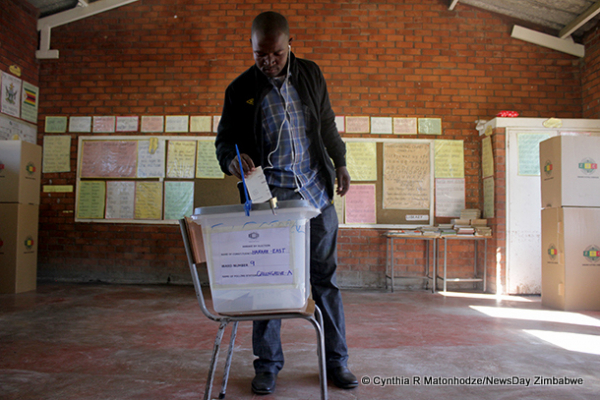
RURAL women leaders’ civic groups, Community Action Accountability Teams (CAATs) and Women Safe Spaces for Reconciliation (WSSR), have set guidelines to ensure that the country holds free and fair elections this year.
BY SILAS NKALA
The civic groups are part of Heal Zimbabwe Trust (HZT) . In a statement yesterday, the civic groups revealed that guidelines were agreed on in Harare last week at a national women’s summit on elections.
“The meeting brought together 250 rural women leaders from the 210 constituencies. The summit was held in pursuit of United Nations Security Council Resolution 1325 (SCR1325) that recognises the under-valued and under-utilised contributions women make to conflict prevention, peacekeeping, conflict resolution, and peace-building,” HZT said.
“The resolution also stresses the importance of women’s equal and full participation as active agents in peace and security. Some of the key provisions of this resolution include the need for increased participation and representation of women at all levels of decision-making and the need for attention to specific protection needs of women and girls in conflict.
“The main objective of the indaba was to afford rural women, who are part of Heal Zimbabwe community peace structures an opportunity to meaningfully input in electoral processes in Zimbabwe and come up with minimum standards for the holding of free, fair and peaceful elections.”
HZT executive director, Rashid Mahiya underscored the need for women to take up leadership roles and actively participate in electoral processes by not only voting, but also running for political office.
“Heal Zimbabwe will continue to work with women since they are key stakeholders in the attainment of peace and social cohesion. Added to this, women are capable leaders, who can champion unity and peace in local communities.”
- Chamisa under fire over US$120K donation
- Mavhunga puts DeMbare into Chibuku quarterfinals
- Pension funds bet on Cabora Bassa oilfields
- Councils defy govt fire tender directive
Keep Reading
The women’s summit brought together various stakeholders, who include commissioners from the National Peace and Reconciliation Commission (NPRC), Zimbabwe Human Rights Commission (ZHRC), legislators and civil society organisation (CSO) representatives.
NPRC commissioner, Netty Musanhu highlighted that the peace commission had a victims and gender committee responsible for investigating gender-related violence since women bore the brunt of political violence.
“There is need for women from across the political divide to unite and repel the forces of violence. Women are the worst affected by political violence, hence, the need by the NPRC to work closely with women . . .” she said.
Musanhu acknowledged the role played by rural women leaders to build peace and social cohesion.
Legislators Priscilla Misihairabwi-Mushonga and Concillia Chinanzvavana encouraged women to participate actively in electoral processes and also promised to continue advocating for women’s rights in Parliament.
The summit revealed that most rural women were not aware of their rights and were being forced to submit their voter registration slip serial numbers by traditional leaders and Zanu PF structures.
Stakeholders noted that intimidation discouraged women from running for political office.
“The following are some of the minimum demands for free, fair, credible and peaceful elections agreed at the Women’s Summit on peace. Independent commissions such as Zec [Zimbabwe Electoral Commission], ZHRC and NPRC must carry out robust awareness campaigns on the need for peace in rural communities ahead of the 2018 elections,” the Heal Zimbabwe report read.
“Political parties must make public pledges to uphold peace and report supporters, who perpetrate violence to the police. Traditional leaders must allow citizens and CSOs to campaign for peace in rural communities. Traditional leaders must be apolitical and allow people to vote freely without being intimidated.”
They called for international observers to be deployed before elections and that soldiers and the police officers should serve and protect the rights of citizens.
“All political parties must be afforded an opportunity to campaign freely and must have access to the media. The police must arrest all perpetrators of violence without fear or favour,” the report read.











